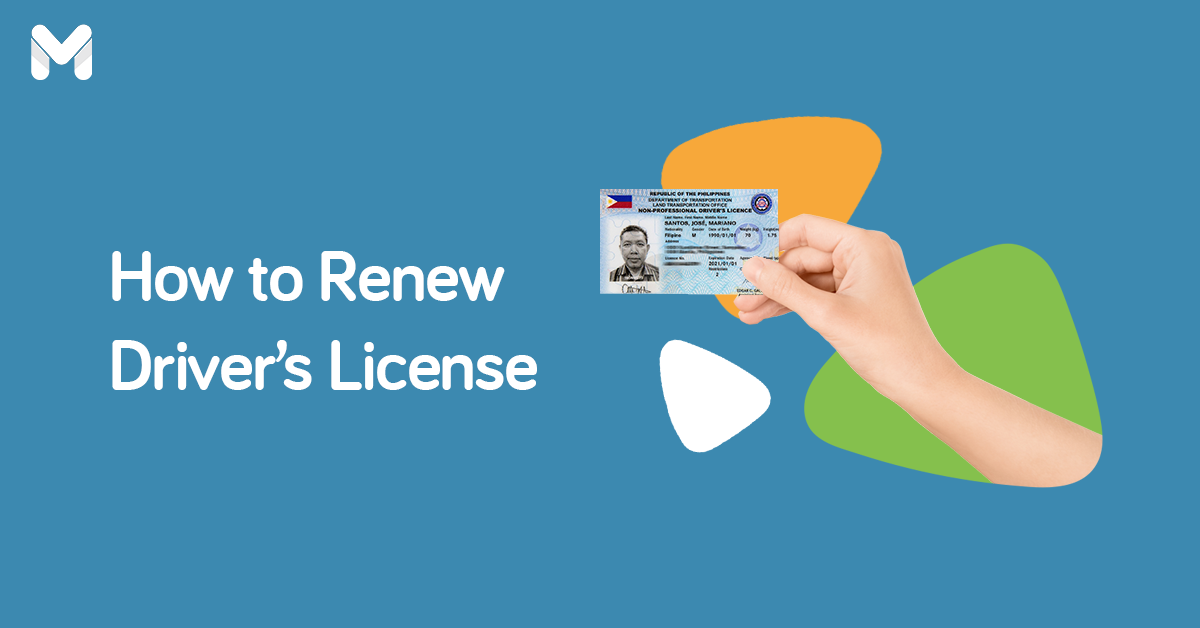There are more ways to make a living other than working nine to five and climbing the corporate ladder. With the internet at your disposal, you can choose to become your own boss by starting an online business, partaking in the gig economy, or even working as a social media influencer.
Remember, however, that online ventures are subject to certain regulations, such as business registration and tax payments. Legitimize your enterprise and avoid issues down the road by complying with these requirements.
Here’s everything you need to know about online business registration. Also included are important reminders on tax payments.
Do I Need to Register My Online Business in the Philippines?

According to the Revenue Memorandum Circular No. 60-2020,[1] the BIR requires registration for "all persons doing business and earning income in any manner or form, specifically those who are into digital transactions through the use of any electronic platforms and media, and other digital means."
However, days after issuing the order, the government clarified that not all kinds of online sellers are required to register.
Exempted from the DTI and BIR registration are those selling products “intermittently or irregularly” and those selling homemade items as a hobby. According to the DTI, they consider such online sellers to not be in business yet, so they don't need to register.
Therefore, you have to register your business only if you're earning money regularly through any online means—even if your business is small. The latest BIR memo covers not just online sellers but also other people who make money online, such as freelancers, YouTubers, and bloggers.
6 Benefits of Online Business Registration

Online business registration in the Philippines may be a burden in terms of money, time, and effort, but it can actually help you grow your business.
Here's why registration with the DTI and BIR is good for your business:
✔️ Increase Your Customers
If your online business is registered, it means your operation is legitimate. People are more likely to trust and buy from registered online sellers who comply with the law and therefore seem less likely to scam them.
Also, if you're planning to sell on Lazada and Shopee, these e-commerce websites will require you to submit business registration documents from the DTI and BIR.
Read more: 10 Steps to Starting an Online Business in the Philippines
✔️ Qualify for Business Loans
Need additional funds for your working capital? You might need to apply for a business loan someday to cover some of your operational expenses.
Formal lenders like banks require DTI certification, BIR certificate of registration, and income tax returns (ITRs) from borrowers who are self-employed or entrepreneurs. You can have these documents only once you register your business.
✔️ Receive Government Assistance
Being registered makes your online business eligible for government assistance programs during certain crises. Only registered businesses in the Philippines can avail of cash aid or loans for micro, small, and medium enterprises from different government agencies.
✔️ Foster Relationships with Suppliers and Partners
To gain the trust of your suppliers and partners, you need to show them that your business is the real thing. Online business registration in the Philippines is especially necessary if you want to work with bigger partners, such as corporations, in the future. Keep in mind that large companies always carry out background checks before working with other businesses.
✔️ Steer Clear of Legal Issues
If you’re trying to avoid taxes and other obligations, it’s only a matter of time before you get caught. And when that happens, you’ll face legal repercussions and even pay huge penalties. This is where the importance of online business registration truly shines.
✔️ Advertise Your Products and Services Confidently
The adage “You have nothing to fear if you have nothing to hide” applies well to those who have completed their online business registration in the Philippines. When you know your business is 100% legal, you won’t be afraid to market your products and put your name out there.
How to Register Your Online Selling Business in the Philippines
👉 DTI Online Business Registration
As a single proprietor, you have to register your online business name first with the DTI before you register with the BIR.
Good thing it's easy and quick to apply for DTI online registration for online sellers through the Business Name Registration System (BNRS).[2] For the requirements and steps, check out this DTI business registration guide.
👉 BIR Online Business Registration
After you've secured a certification from the DTI, you can now register your online business with the BIR.
To register your online business with the BIR, you may personally do it at the Revenue District Office (RDO)[3] with jurisdiction over the area where you live or via the NewBizReg portal. Here’s how to get your Certificate of Registration from the BIR:
BIR Online Business Registration Requirements
- Accomplished registration form (BIR Form No. 1901)[4]
- Valid ID (e.g., birth certificate, passport, driver's license, etc.)
- DTI Certificate of Registration
- Annual registration fee (₱500)
- Documentary stamp tax (₱30)
Note: The business permit/mayor's permit is no longer required. The BIR issued an order [5] on June 9, 2020 removing the mayor's permit from the list of requirements to streamline the process of business registration.
How to Register an Online Business in the Philippines with the BIR (Walk-in Application)
- Go to the RDO which has jurisdiction over your place of residence.
- Fill out two copies of BIR Form No. 1901. Under Taxpayer Type, choose the item that applies to you:
- Single Proprietorship Only: If online selling is your sole source of income
- Professional and Single Proprietor: If you're an online seller who also practices a profession (e.g., engineer, accountant, dentist, etc.)
- Mixed-Income Earner – Compensation Income Earner & Single Proprietor: If you're an employee with online selling as a sideline or raket
- Mixed-Income Earner – Compensation Income Earner, Single Proprietorship & Professional: If you're an employee who also sells online and practices a profession
- Present the business registration requirements to the BIR officer.
- Proceed to the New Business Registrant Counter to pay for the registration fee and documentary stamp tax.
- Secure BIR-printed receipts (BPR) / BIR-printed invoices (BPI) or the Authority to Print (ATP).
- Receive the following documents from the BIR:
- Certificate of Registration (BIR Form No. 2303)
- Your copy of BIR-stamped Form No. 1901 with your TIN (if you were not issued with a TIN)
- Notice to Issue Receipt/Invoice
- BPR/BPI or ATP
- Proof of payment of the registration fee
How to Register Your Online Business via BIR NewBizReg Portal (Online Application)
The New Business Registration (NewBizReg) Portal[6] is an online service that enables you to submit your application for business registration directly to the BIR Head Office or any BIR Revenue District Office (RDO). You'll need to scan all the documents required and submit them via email through this portal.
Here are the steps to using the BIR NewBizReg for online registration of business:
1. Prepare all the documentary requirements in a scanned PDF copy. Note that all the file attachments should not exceed 4MB.
-
- BIR Form No. 1901
- Any government-issued ID
- BIR printed receipt or invoice or sample of own principal receipts or invoices
- ₱500 for annual registration and ₱30 for documentary stamp tax
Note: You may also be required to provide a Special Power of Attorney if you're transacting through a representative, a DTI Certificate if you have a business name, or a Work Visa if you're a foreign national. For the full requirements, check the list on the NewBizReg Portal.
2. Next, answer the tax-type questionnaire[7] to determine your tax liabilities. Download and fill out the form. You'll also submit a scanned copy of this.
3. Pay the ₱530 registration fee and documentary stamp tax through any BIR ePayment channel.[8]
Note: If you don't have a TIN yet, you can wait for the email instruction on how to settle your registration and documentary stamp tax online, or you may also proceed to your RDO and pay at the New Business Registrant Counter when you collect your Certificate of Registration.
4. Attach all your accomplished and scanned documents in your email and send them to the RDO where you're supposed to submit the application. To find your RDO's email address, supply the information required on the NewBizReg Portal (province, city/municipality, barangay, business type, your full name). You should see the RDO number and its email address.
5. Click on Email Your Application to open your computer's email program. If this doesn't work, log in to your email, attach the scanned documents, and send them to the email information generated for the corresponding RDO. The BIR will then process your application manually within three working days from the date of your email.
6. Wait for an email that contains your schedule for the pick-up of your Certificate of Registration and purchase of BPR/BPI or ATP, if applicable.
How to File Your Income Tax Return
Once your online business is registered, one of the things you need to do is to file the required tax returns with the BIR. The types of taxes you're required to file and pay are indicated on your BIR Certificate of Registration.
The usual tax returns[9] that online businesses file are BIR Forms 1701 (or 1701A) and 1701Q. When filling out these ITRs, you must declare all the income you've earned and any taxes due for the current year (plus those from previous years if you're newly registered). Then file them with the BIR online through its eFPS or eBIRForms facility.
Deadlines for Filing ITR
- BIR Form No. 1701/1701A - On or before April 15 of each year covering income for the previous year
- BIR Form No. 1701Q
- 1st quarter - May 15 of the current year
- 2nd quarter - August 15 of the current year
- 3rd quarter - November 15 of the current year
As an Instagram online seller, freelancer, YouTube or TikTok vlogger, or social media influencer on Instagram, Facebook, Twitter, or Snapchat, it's important to know if you're exempted from paying taxes.
Under the TRAIN law, online businesses earning less than ₱250,000 per year (or less than ₱20,833.33 per month) do not have to pay income tax. However, even if you're exempted from paying taxes in the Philippines, you're still required to register your business and file tax returns with the BIR.
How to Pay Tax for Online Business in the Philippines
Like other types of taxpayers, online businesses should pay the correct taxes on time. It's easy to comply with this rule nowadays, as the BIR offers several convenient online methods for tax payment.
Remember that online sellers are required to pay the following taxes:
- Income tax
- Percentage tax if gross sales/receipts for 12 months is ₱3 million or below
- Value-added tax (VAT) if the gross sales/receipts for 12 months is above ₱3 million
- Withholding tax on compensation if your business has employees
- Withholding tax on expanded tax
You can pay your taxes via your bank's online or mobile banking channel, GCash app, or PayMaya app. BancNet ATM/debit cardholders can pay through the LANDBANK Link.BizPortal or DBP Pay Tax Online (which also accepts Visa/Mastercard credit cards).
Online Business Registration in the Philippines FAQs

You now have an idea of how to register an online business in the Philippines. But you may still have some questions that need answers. Check out the following:
1. What are the additional requirements if the online business is a corporation?
The Securities and Exchange Commission (SEC) requires corporations to provide the following:
- Cover sheet
- Articles of Incorporation
- Written consent of the nominee and alternate nominee
- Other documents if applicable
2. What are the additional requirements if the online business is a cooperative?
For cooperatives operating as an online business, the Cooperative Development Authority (CDA) requires the following documents:
- Economic survey
- Surety bond of accountable officers
- Treasurer’s Affidavit
- Articles of Cooperation and By-Laws
- Approved Cooperative Name Reservation Slip
- Certificate of Pre-Membership Education Seminar (PMES)
3. Can I go directly to the BIR after my DTI registration?
Yes. After getting your online seller registration in DTI, you can go straight to the BIR for the registration of your business.
4. Other than BIR online business registration, what are my other duties as an online entrepreneur?
Your other obligations include the following:
- Tax return filing as discussed above
- Tax payments as discussed above
- Issuance of invoices and receipts for any sale or receipt of payment
- Recording of transactions in books of account
5. I have employees in my online business. What are the additional requirements that I should comply with?
According to the DTI, any business that has at least five employees is encouraged to apply for a Department of Labor and Employment (DOLE) registration. But if your business has 50 or more employees, a DOLE registration is mandatory.
You also have to make sure that your employees have the following benefits: SSS, Pag-IBIG, and PhilHealth.
6. Do I have to apply for special permits for my online business?
Other than a DTI online selling registration, you may need to apply for a special permit depending on the nature of your business. The issuing department varies from industry to industry.
Read more: How to Start a Dropshipping Business in the Philippines in 2023
7. Can I sell medicines online?
The FDA doesn’t allow the online selling of health products (including medical devices and supplies) unless you have corresponding authorizations. You’ll have to acquire the necessary documents, such as a License to Operate, a Certificate of Medical Device Notification, and a Certificate of Medical Device Registration/Certificate of Product Registration) to operate your business.
8. How do I protect my online business’ intellectual property?
If you have concerns regarding trademarks, copyrights, and patents, the DTI advises working with the Intellectual Property Office of the Philippines. You can find the contact details of various offices at www.ipophil.gov.ph.
Final Thoughts
Running an online enterprise, whether as a seller or a social media influencer, can earn you good money if you have the right strategy. But before you get to this exciting part, you need to make sure that your operation is 100% legitimate. Avoid legal headaches down the road by prioritizing online business registration in the Philippines.
Ready to launch your online business? If you need more funds to start your enterprise, check out your personal loan options and apply through Moneymax:
Sources:







_1200x350.png?width=751&height=219&name=UB_PL_Generic_2_(Jan_2025)_1200x350.png)


